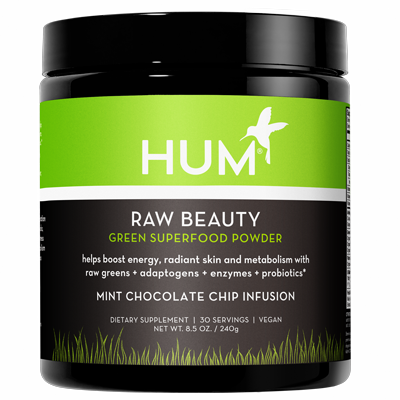The Benefits (and Limits) of an Alkaline Diet
If your diet often includes sugary drinks, tons of coffee, meat, eggs, and alcohol (most of which are not unhealthy in moderation), there’s a chance it might be on the acidic side and might make it difficult for your body’s systems to stay balanced. The opposite of acidic foods is alkaline (more on exactly which foods are included later), which have a higher pH. But are there actually health benefits of an alkaline diet?
Celebrities have praised the alkaline diet for weight loss, and for other benefits, from reducing osteoporosis to preventing cancer. With claims like these, it’s no surprise the alkaline diet has been popping up in headlines for decades. Registered dietitian Jessica Bippen, MS, RD, explores if there are benefits of an alkaline diet, including the pros and cons of this buzzy pH diet.
What is the Alkaline Diet?
The alkaline diet, aka the alkaline-ash diet or acid-alkaline diet, is based on the concept of manipulating your body’s pH based on the food you eat. The idea behind this eating pattern suggests that when we metabolize food, we leave an “ash” that is either alkaline or acidic. The foods that promote an acid pH in the body require your body to work harder to rebalance its tightly regulated, slightly alkaline pH. When we constantly eat acid-forming foods, it takes a toll on this buffering system. They make the body more susceptible to weight gain and diseases like osteoporosis and cancer.
While the lists of alkaline foods differ slightly depending on the resource, the majority of food groups can be classified as either alkaline or acidic. The lists aren’t as straightforward as you might think. The foods are classified according to if they’re acid-forming or alkaline-forming in the body, not by how they taste. For instance, a lemon is very acidic but in the body it’s alkaline-forming. Kind of confusing, right?
Here’s a general breakdown of the acid- and alkaline-forming foods:
Acidic: Meat, poultry, fish, dairy, eggs, grains, peanuts, walnuts, caffeine, alcohol
Alkaline: Beans, legumes, vegetables, fruits, and most nuts

But what does science say?
In order to understand the potential alkaline food benefits, we need to take a closer look at the pH scale.
In case you were sleeping during high school chemistry (or just need a little refresher), every substance has a pH that falls on a scale from 0 to 14. The closer the pH is to 0, the more acidic it is. The closer the pH is to 14, the more alkaline it is, with 7 being neutral.
Normal, healthy blood pH ranges between 7.35 and 7.45. The body does a fabulous job of keeping it tightly regulated though several body processes such as respiration and urination. The food we eat (thankfully!) doesn’t alter the blood pH. Blood pH outside of its tightly regulated range results in critical illness. So, any claim that the alkaline diet alters your blood pH is just not true.
With that being said, the food we eat can alter the pH of our urine. The kidneys eliminate any excess acid in the urine. But this is actually the way the body ensures that the blood stays within the necessary pH range. The fact is that urine pH is a very poor indicator of the body’s pH and your health since many factors other than diet influence it.
What Are the Possible Benefit of an Alkaline Diet?
Can an alkaline diet result in cancer prevention, weight loss, and other benefits? One of the most well-known claims of the alkaline diet is that it prevents or stops the growth of cancer. However, there’s no substantial evidence to support this, according to the most recent research. The theory is based on studies that suggest cancer survives in an acidic environment. While these findings are accurate, newer studies suggest that the cancer cells form their own acidic environment, which isn’t affected by the food we eat.
The claim that acid-forming foods lead to osteoporosis doesn’t have substantial evidence to support it. Scientific reviews show an inconclusive relationship between acid-forming diets and calcium in the body. Studies even show that a protein-rich diet—which is considered acidic—is beneficial for bone health.
While not enough substantial evidence supports the claims of the alkaline diet, there are possible alkaline diet benefits unrelated to pH. The alkaline diet focuses on plant-based foods. It’s naturally low in sodium and high in vitamins and minerals. Numerous studies show the benefits of fruit and vegetable intake aiding in healthy weight management and decreasing disease risk due to their nutrients, fiber, and antioxidants.
Should You Eat Alkaline Foods?
At its core, the alkaline diet is centered on fruits and vegetables, which are key components of a healthy, well-balanced diet. Rather than focusing on a list of restricted foods and worrying about the pH of your body, focus on eating more plant-based foods and make vegetables the majority of your plate. For easy reference, make 50-75% of your plate leafy greens and veggies, 25% protein, and 25% complex carbohydrates. Add a healthy fat like avocado, coconut oil, or hemp seeds for better absorption of nutrients and healthy hair, skin, and nails. This simple formula makes it easy to ensure you’re getting a balanced meal full of nutrients.
Bottom line: Enjoy a balanced, veggie-heavy diet. There’s no need to go to extremes of trying to alter your body chemistry.









